|
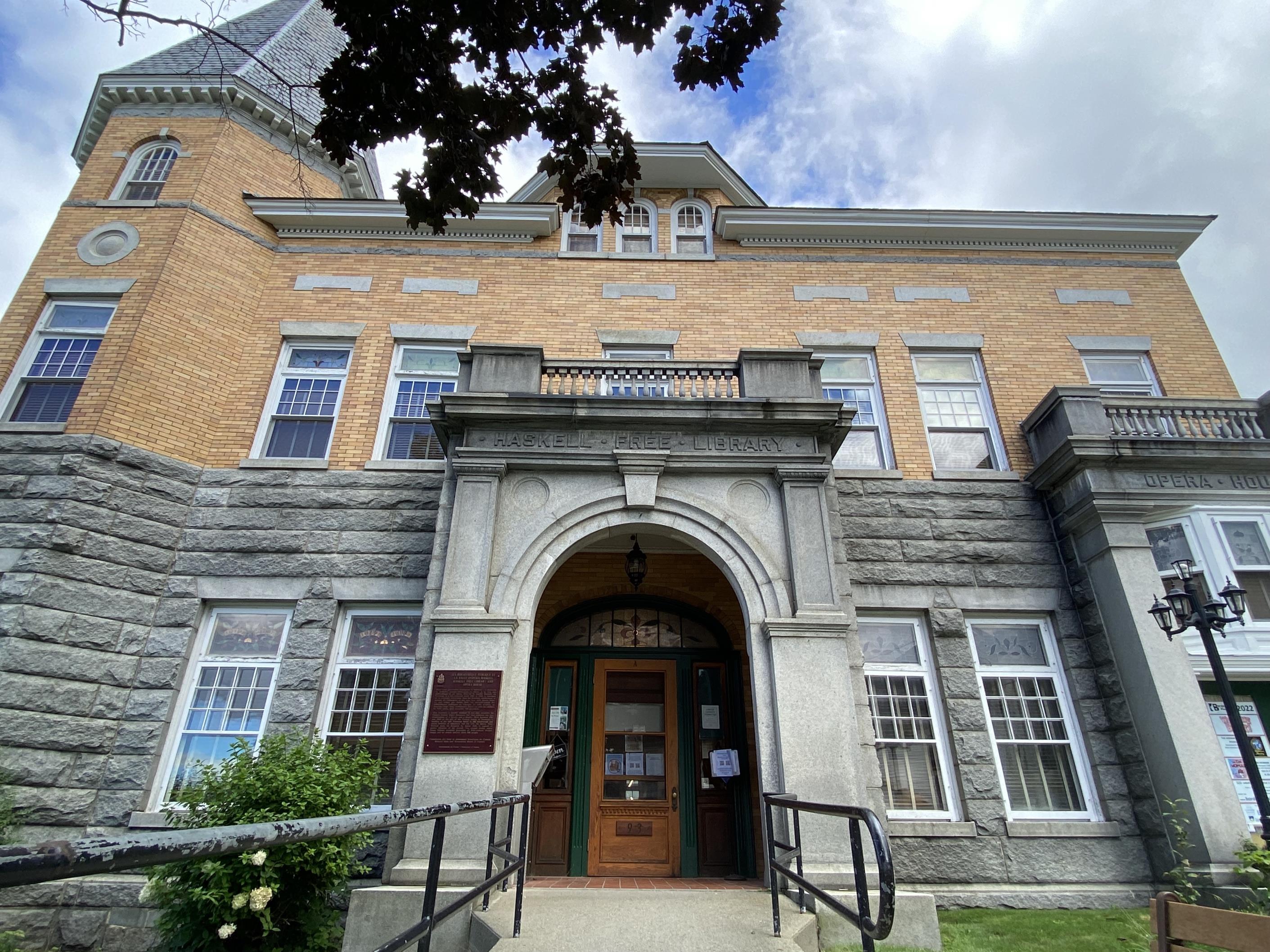
Mélanie Aubé, Haskell Library Director, and Kathy Converse, Library Volunteer, gave the Bernie Buzz a tour. Read excerpts of the tour below, which has been edited for clarity and length.
As we step across this piece of tape on the floor, we're crossing now from the U.S. into Canada. That's how simple it is here. That's what makes the Haskell unique in the world. This atrium was the center but this circulation desk was not here. It was originally positioned to block access to the stacks where the books were located. The first librarian was a man. The patron would tell him what they wanted or would give him a wooden block of wood with the title, and then he would go and get the book. Back then, you did not have free access to all the books. Obviously in 1904, the books were more valuable and hard to come by.
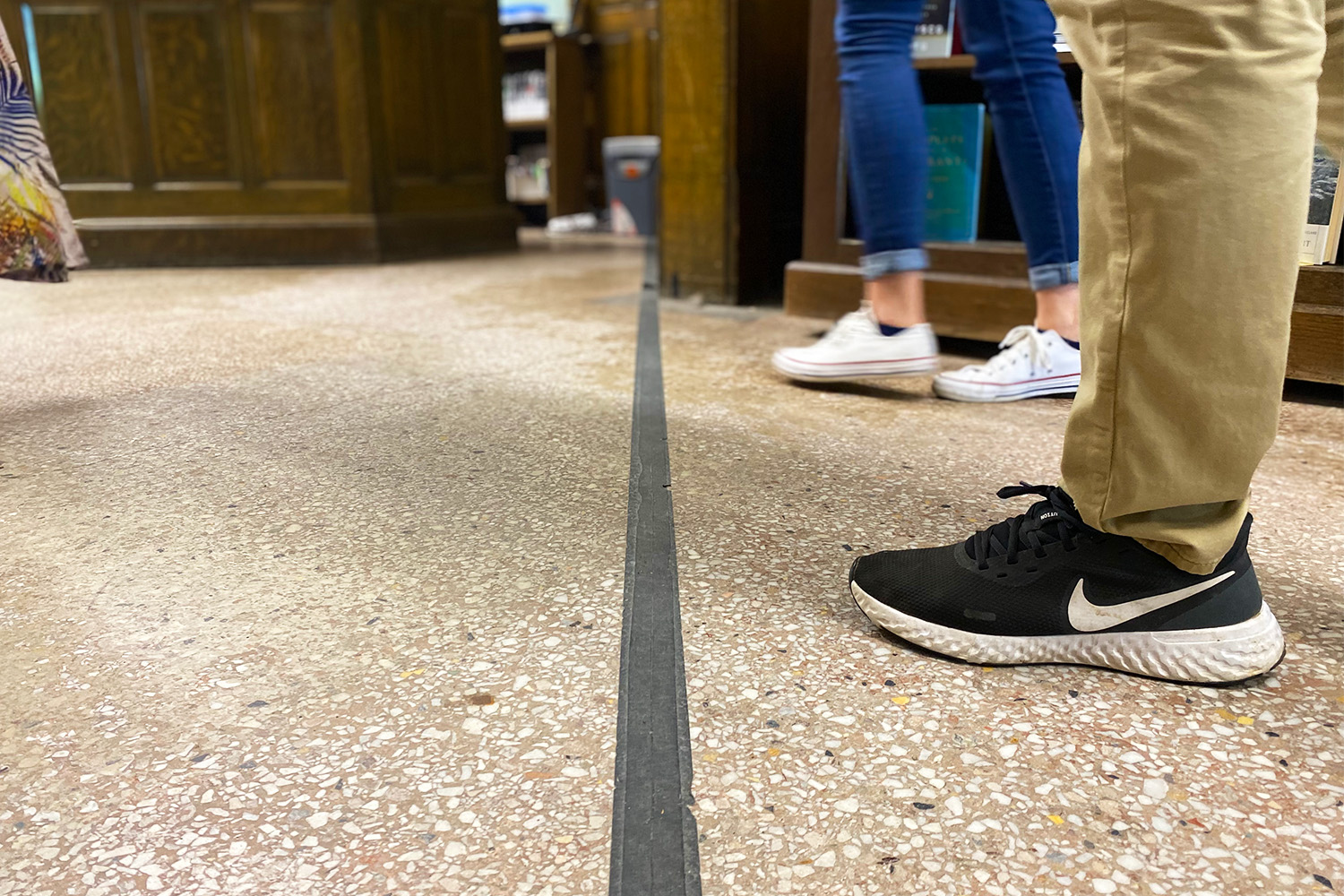
The ceilings are made of what at the time was called pressed steel. Now some people call it pressed tin. I read the original letters between Colonel Haskell and his architect who was from this area and they always called it steel. These are the shelves, original to the library. At that point in our history, the local population were English-speaking, so all of our books were in English.
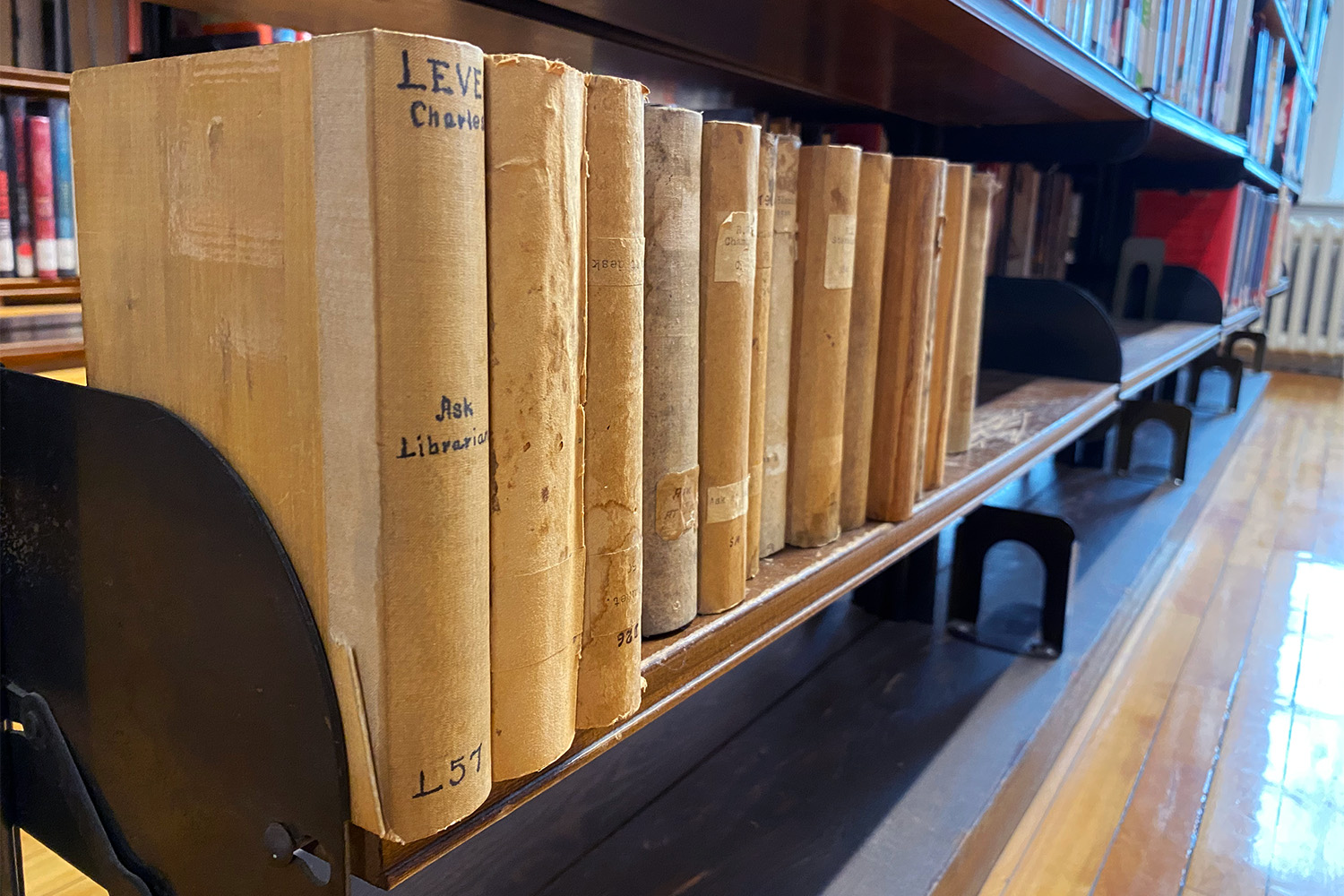
As the French speaking population moved south, we added French books to our collection. About one-third of the books are in French, but we're continually adding more.

This is now our children's room. The rooms are flexible, but everything else is the way it was. And this was the men's room, the men's reading room, where there were the pipes and the cigars. And you can sort of imagine men reclining with their books and newspapers. They had their own fireplace. Each room featured a local wood, this room featured golden birch. Beautiful wood. You can see how ornate it is. Every room features a different locally sourced wood.
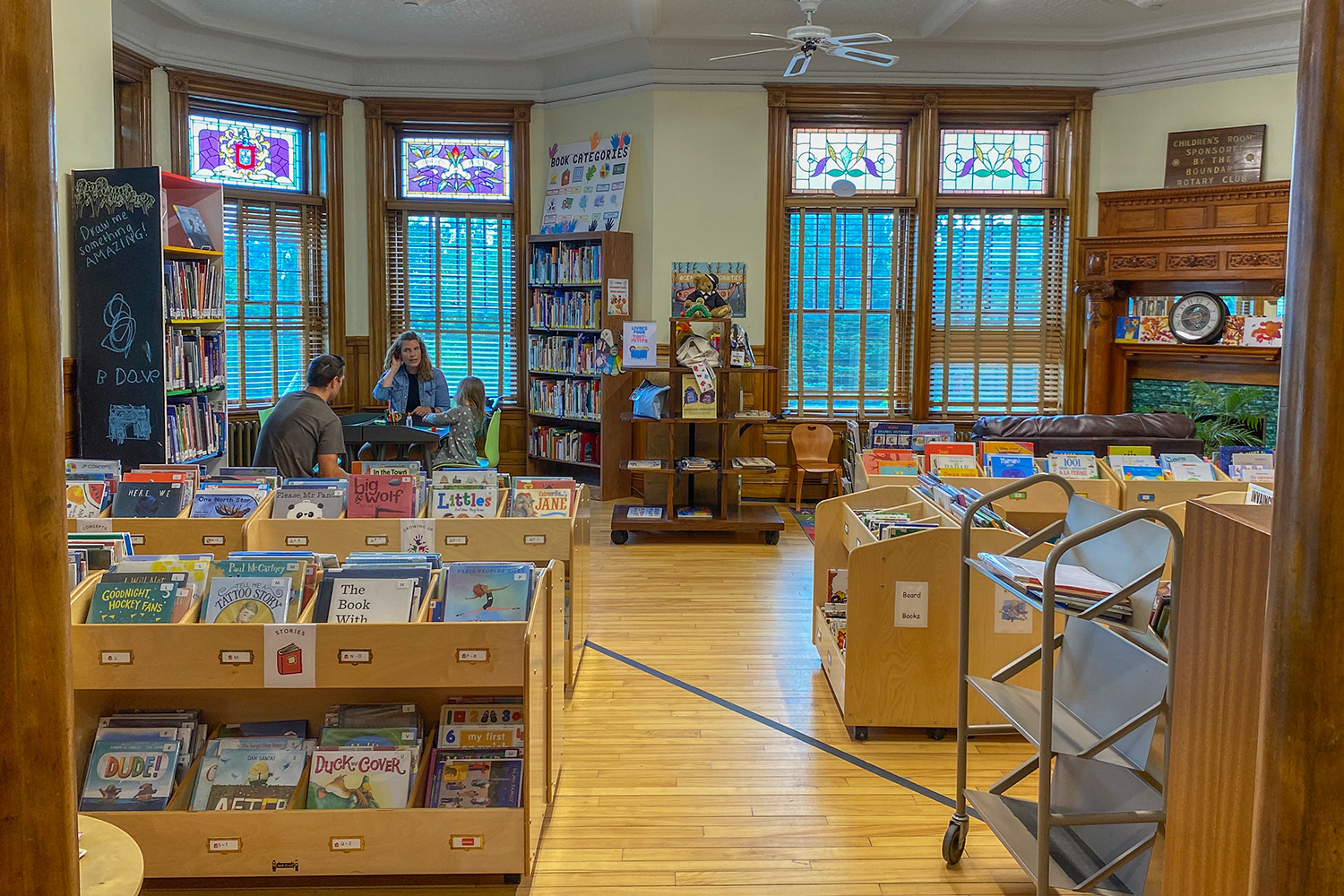
So, this is our theater. It is as it was. The original wooden seats are mahogany. It seats about 400, the balcony is up above. When people come in, they can rent these cushions to sit on for a donation. Some people even bring their own cushions. And then there’s an outdoor balcony here.
Here are the stage screens. These were done by an artist from southern Vermont. Colonel Haskell hired him to do it. These are rolled up in the back on the right. The one that's in use now most of the time, you look right back here, this is a Venice scene. But Colonel Haskell loved steamboats, so there's a steamboat painted in the back of the scene.
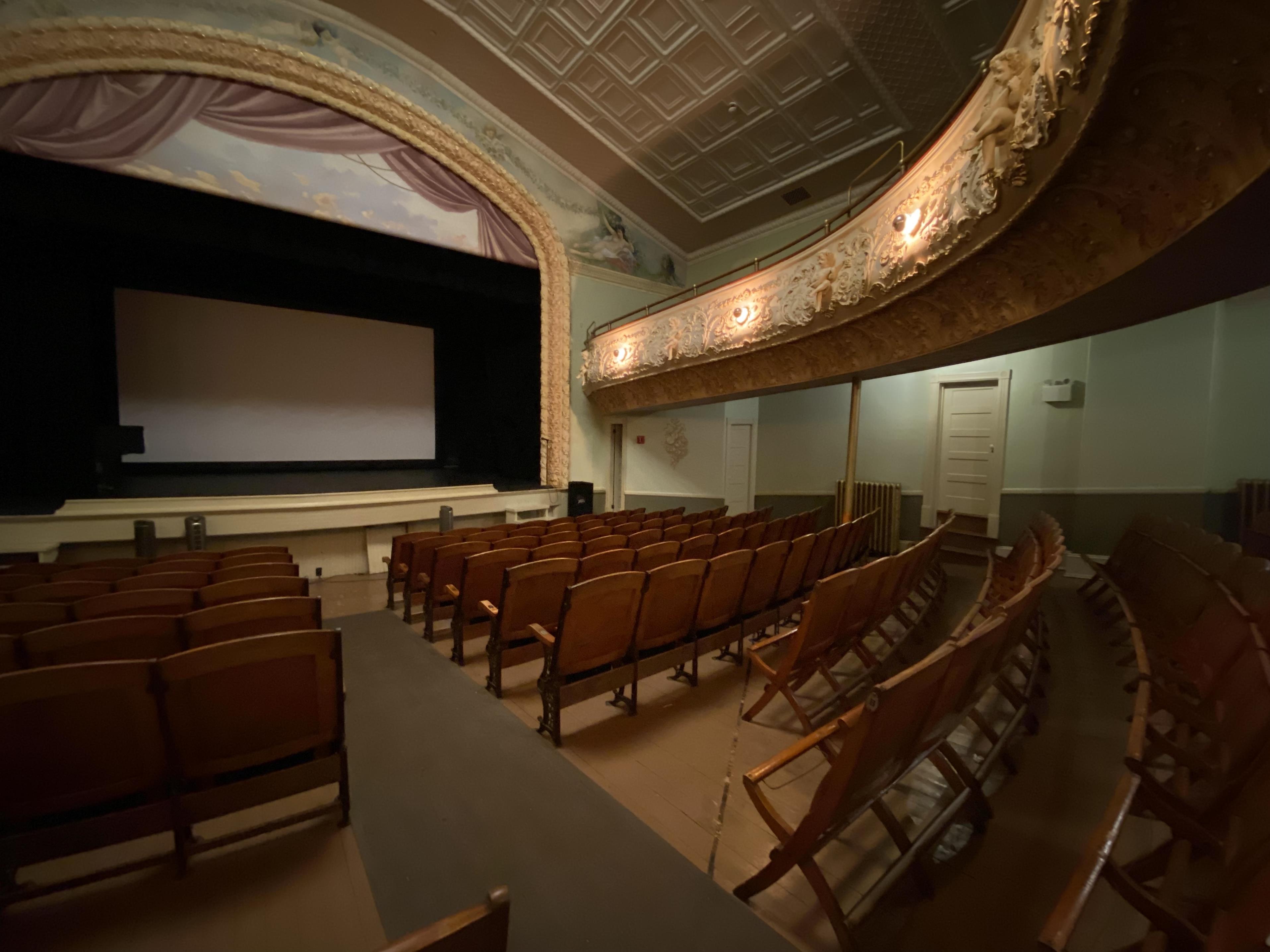
We’re crossing the border again, so the stage is in Canada. The seats closer to the stage were pricier, a bit wider, and had an armrest with a little bit of leather. And if you look under the seats, there are wireframes so that the gentleman could put their top hats or their derbies there.
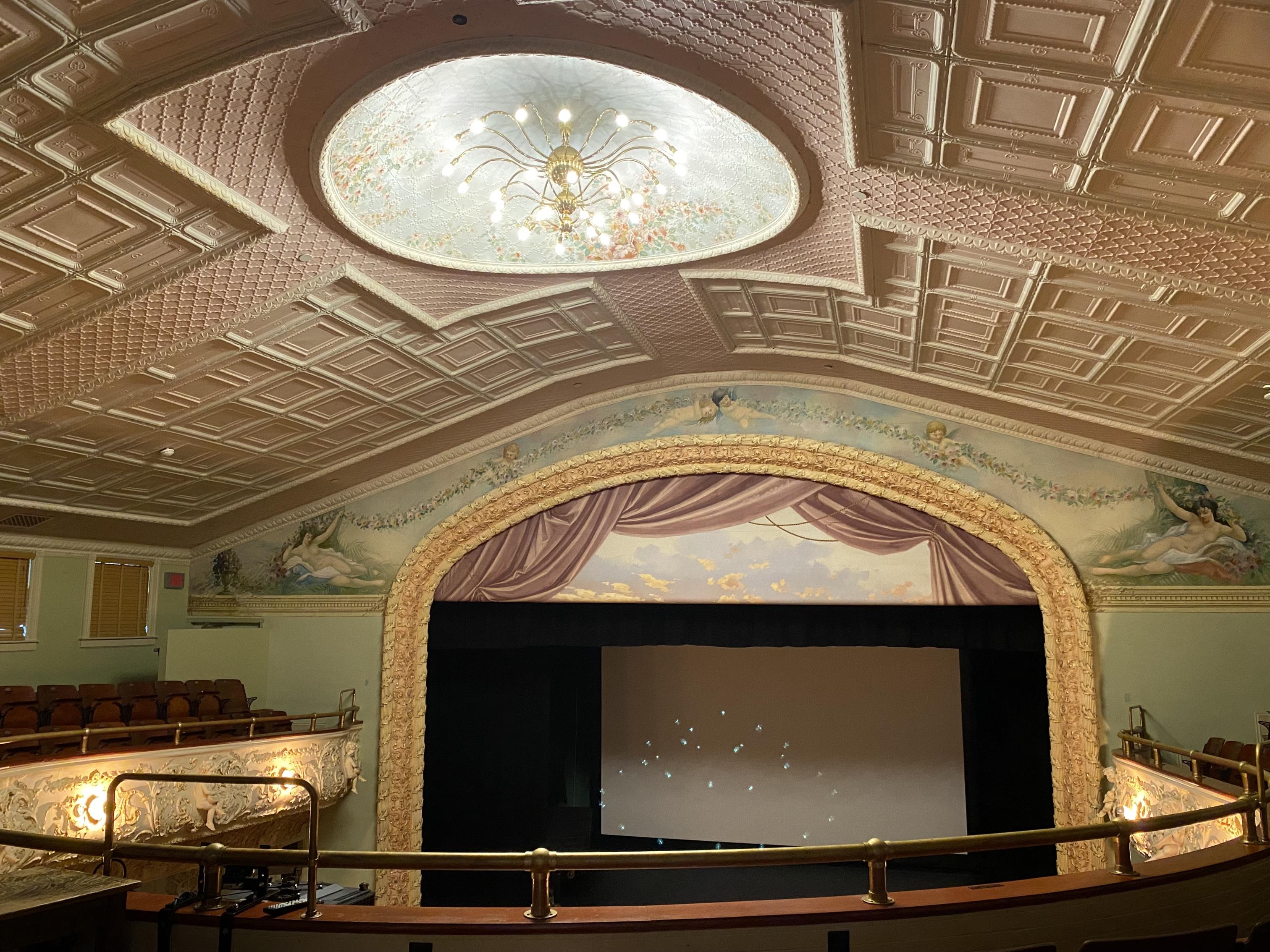
The proscenium arch and the balcony front with the cherubs are plaster and all original, we've never had to do anything to it. The cherubs are plaster. And that's the top of the Venice scene. The two ladies on the far-right sides, which always get a giggle out of students, did need some paint touch ups a number of years ago. But that's pretty much the only decorative pieces that have been changed because that was just a paint.
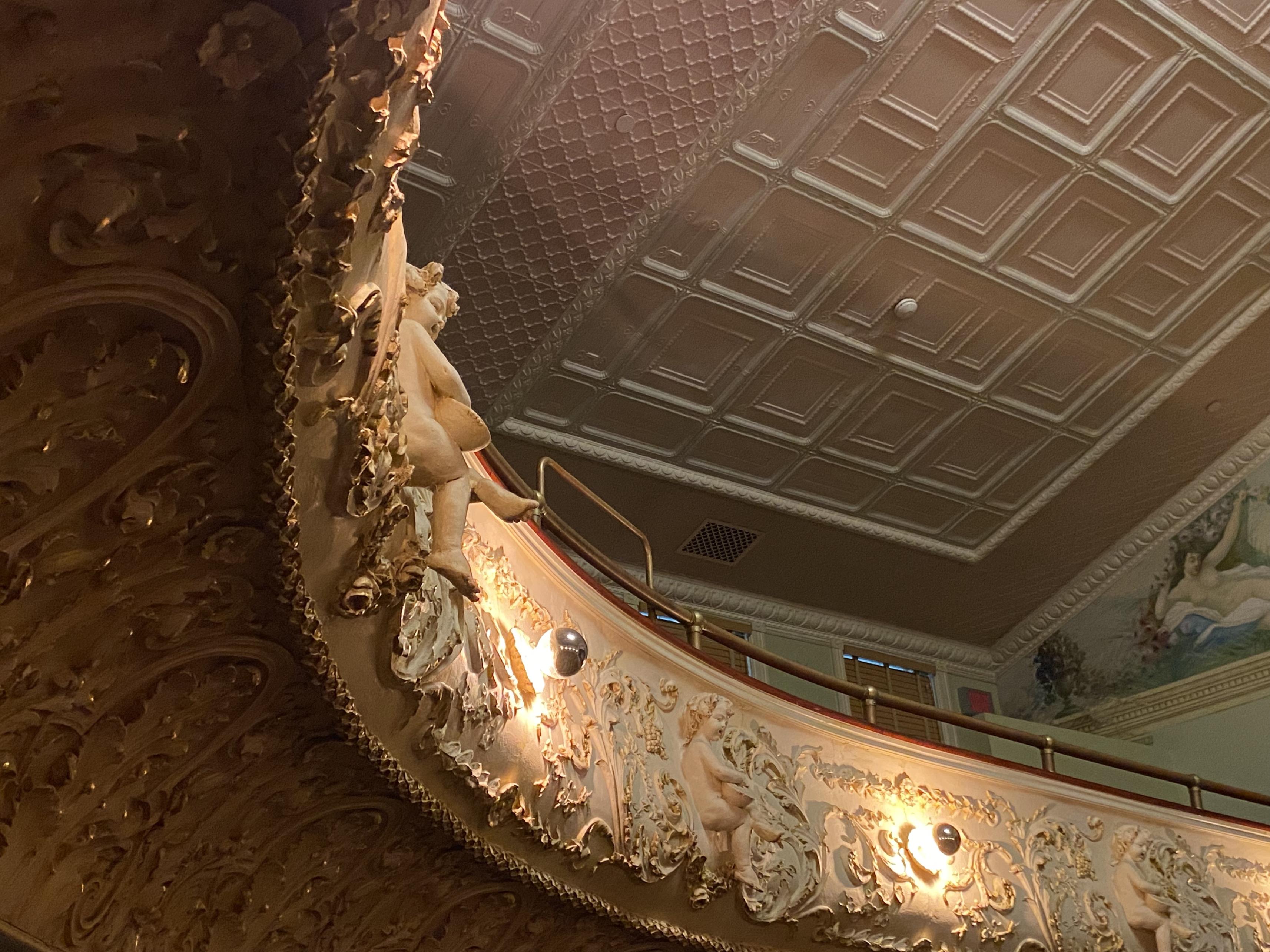
The Haskell was closed for a couple years because of COVID and had to cancel everything. One day we were supposed to just close for a week, and then the day after we were closed for a month, and then we were closed for two years. It was hard. But one thing that's really good is that the board raised some money over the COVID closure to put in insulated windows in the theater. Before we could not have winter performances; the building couldn't maintain the heat. So now the new director will be able to schedule performances during the winter season. Which for us up here in the Kingdom is a blessing because we don't have a lot. Other than snow!
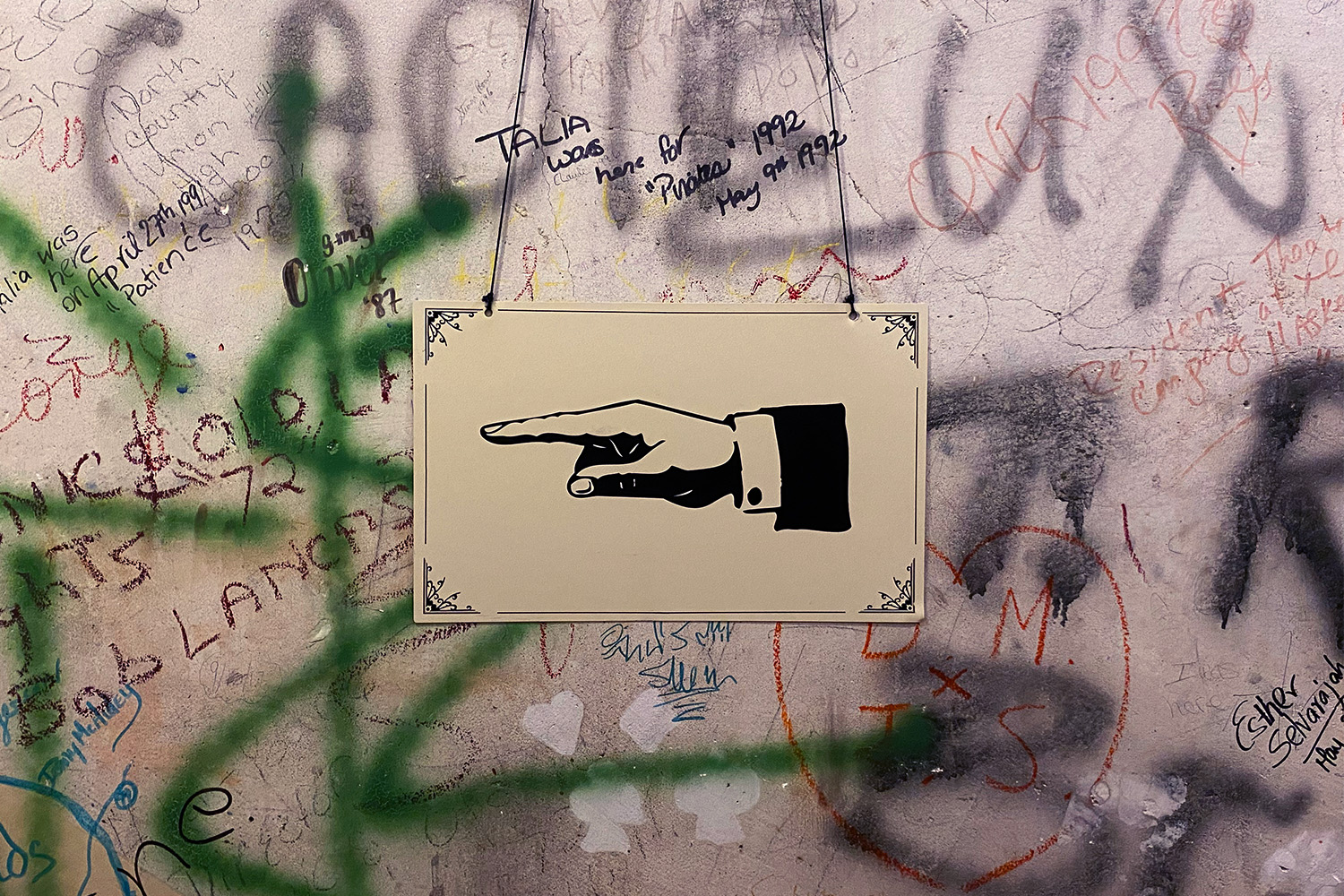
In the backstage areas and corridors, performers would autograph the walls. Look at the years. 1947, 1920, 1925, and so on. And then that goes into the green room and then into the next area and down the stairs – all these walls are marked. And we really cherish them.
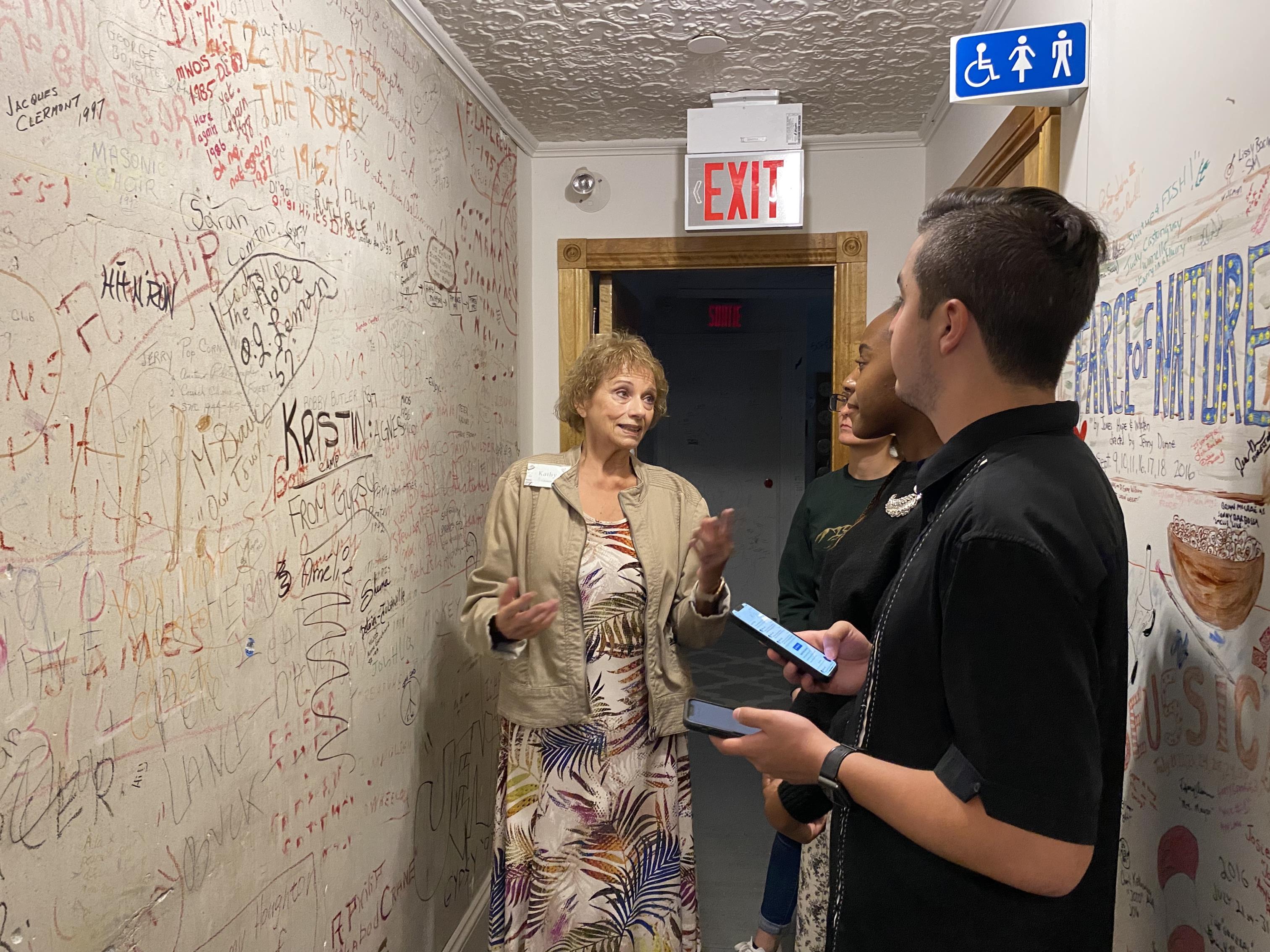
This huge moose was shot by a Mr. Hunt in New Brunswick, Canada. And the story is that it did not fit into his house, through his front door. My story is his wife said no way! The clock was original to the opening in 1904. It's beautiful and works perfectly when someone remembers to wind it!

But on a day-to-day basis, I think it's just a regular library. So, we have a lot of people just coming in to take books out. We have our volunteers or our employees that do the front desk and check books out and we have children's activities. All the employees have to be bilingual. It’s hard on the American side to find people who are bilingual, but that's what we try to have.
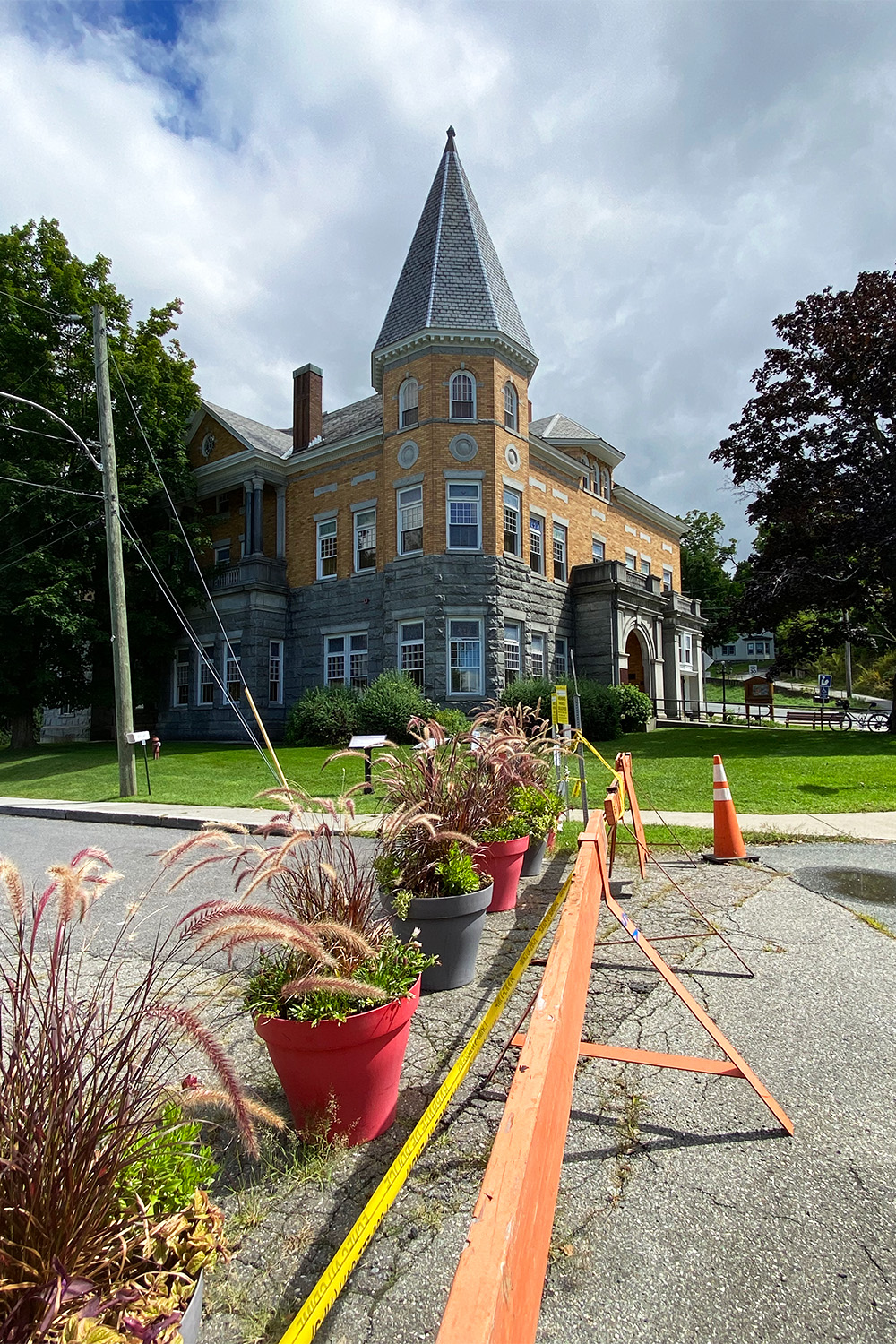
The Haskell Opera House hosts musicals and stage productions; we have a local theater troupe. Each year we are also fortunate to be able to host a performance by the Vermont Symphony Orchestra. We would like to establish a children's choir. We have book clubs in both French and English. We have children's activities in both languages as well. We offer a lot of bilingual services.
For children in the U.S., it's a way to get exposed to another language at a young age. And on the Canadian side, we don't have a lot of libraries in the area. So, if we shut down the Canadians would have to go to a big city, Magog or Sherbrooke, around 30 minutes away.
The Haskell is an open library. We have stuff that other libraries in Vermont don't necessarily have. This library, it's unique. It's something that we need to cherish.
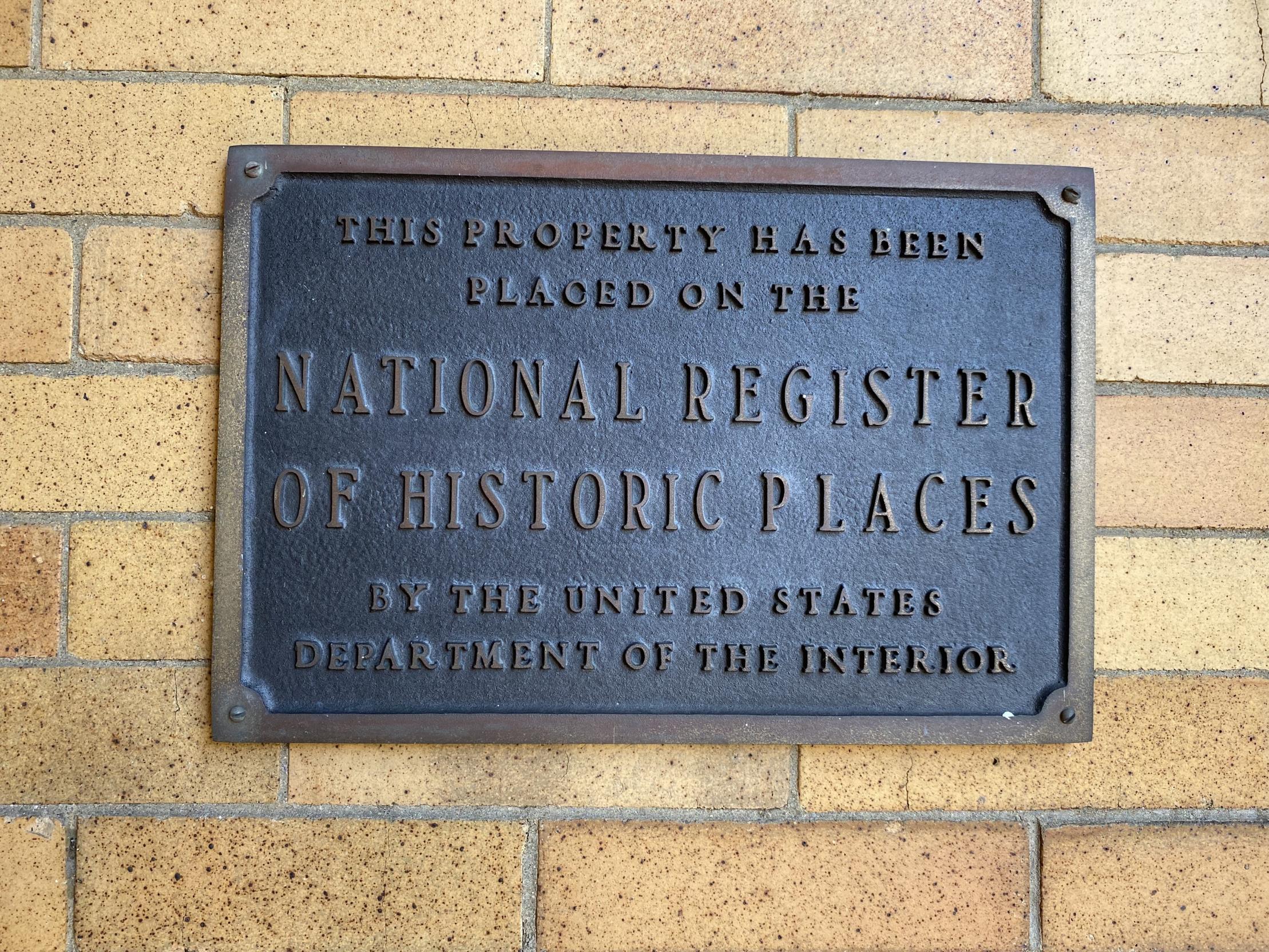
I fell in love with this library. And it's a small community. You know everybody. When someone comes in, they know your name, you know their names. Sometimes they say "hi," sometimes "bonjour." The Haskell is really a nice environment. It's unique. Apart from the books, there's just so many great things going on here every day!

|